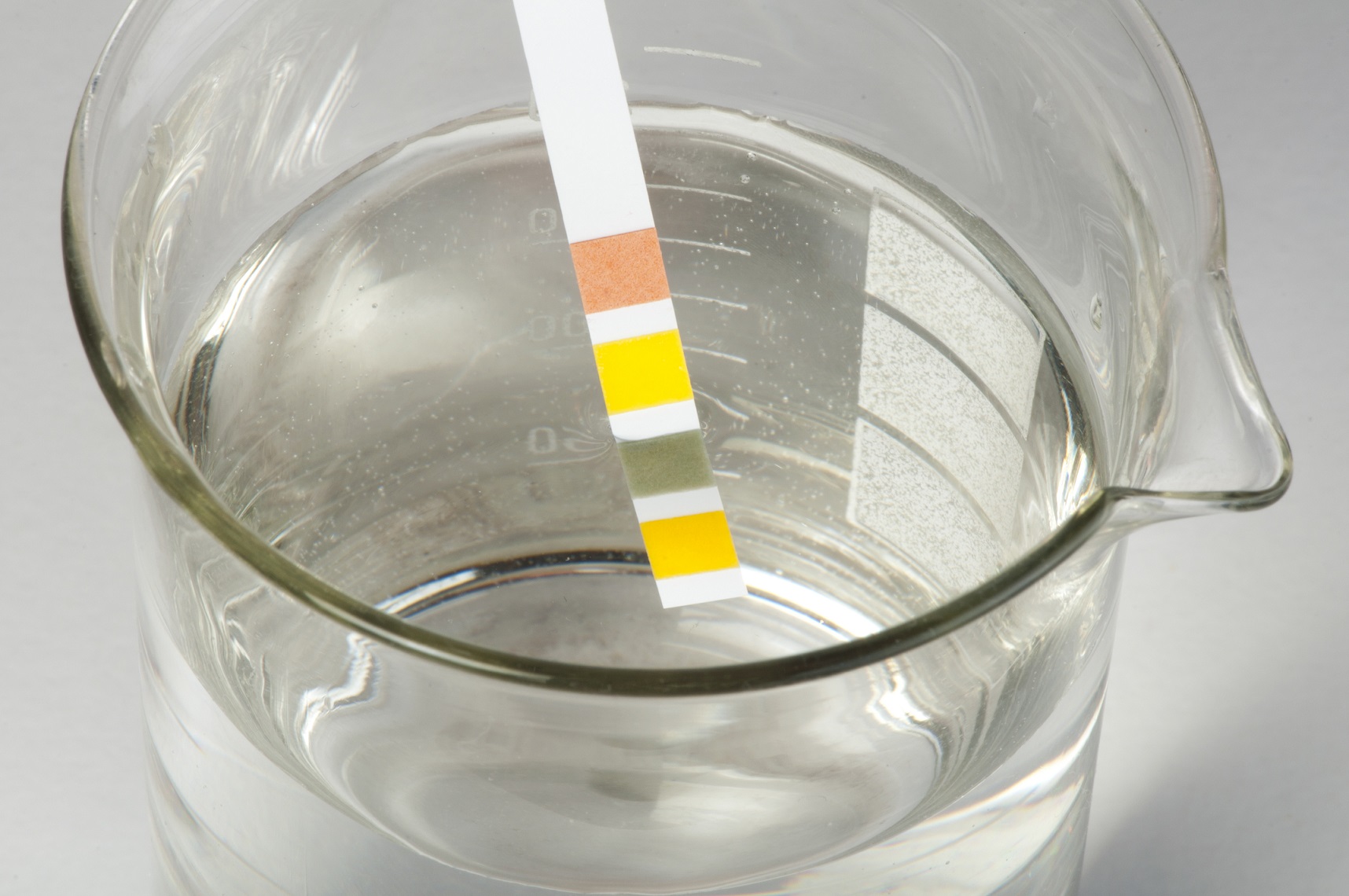
The use of water for all spraying operations in the field has a great impact on their effectiveness. The most common treatments are based on the water from a pond, deep wells, rainwater, and often also from waterworks. As we know, each of these waters has different parameters. Until a few years ago, most of us did not realize how much the properties of water influence the action of chemicals. Often, no effect was seen after spraying the plants and the problem persisted. It turns out, however, that water may have been the cause of this problem.
Before we start preparing the spraying solution, we need to check the chemical properties of the water to be used (its chemical composition, pH, etc.) and if there are any impurities in it that could clog the nozzles in the sprayer. We actually have several options.
One of them is taking a water sample, delivering it to the nearest regional sanitary-epidemiological or chemical-agricultural station, which will be checked for all relevant parameters for a fee.
The second option is to buy a water pH meter and a water quality meter. We can perform testing with such devices at home.
They will show us the exact pH of the water and the exact result of water hardness given in PPM.
|
Type of water |
CaCO3 [ppm] |
|
Very soft |
<89 |
|
Soft |
89-179 |
|
Of average hardness |
179-268 |
|
Of high hardness |
268-357 |
|
Hard |
357-535 |
|
Very hard |
>535 |
The quality of the water used for spraying is very important.
High pH (above 7) and high water hardness have a very large impact on the effective operation of all chemicals used for treatments.
Many of them do not work properly, and thus they do not bring the desired effect.
Hard water is characterized by a higher surface tension, which makes it difficult to moisten and spread the spray over the plant surface. Thus, large drops run off the leaves, which reduces the effectiveness of the treatment. In addition, chemicals that have been used in the spray may not bring the expected result. Therefore, it is worth looking for products that would solve this problem in such a situation.
Every chemical needs a different pH, be it a fungicide, insecticide, or even a herbicide.
When we look at herbicides dissolved in poor quality water (alkaline reaction), we see that they dissolve much more difficultly and it results in less potency and less weed damage and further problems.
The rule is that the water used for the treatment should have a pH close to the pH of the herbicide that we want to use for spraying. Most herbicides on the market are acidic. Therefore, the optimal pH of the working fluid for herbicidal treatments is 4-6.5 (slightly acidic reaction). The research showed that increasing the pH by just one unit contributes to a tenfold increase in the rate of herbicide hydrolysis in the spray liquid. Herbicides, e.g. those based on 2,4-dichlorophenoxyacetic acid, are particularly sensitive to a pH above 7. The substances contained in herbicides, such as pendimethalin, are slightly dependent on the pH of the water. There are also herbicides on the market that may lose their activity in an excessively acidic environment - that is why it is so important to read the labels of the agent used.
Keep in mind that the temperature of the water used for the herbicide treatment is equally important. If it is too low, the agent may not completely dissolve, which will result in sedimentation at the bottom of the sprayer. It is also worth noting that the working liquid prepared on water with a pH above 7 is very unfavorable for fungicides and insecticides. It often leads to very rapid chemical decomposition already in the sprayer tank
The best solution to this problem is to use a spray water conditioner that will acidify the water.
Spray water acidification is a process of artificially increasing the acidity of water. Acidification of the working liquid to a pH of 3.8-4.3 increases the effectiveness of treatments by increasing the activity of the substance. The optimum pH for the working liquid is around 4.5-6 (slightly acidic reaction).
The main task of the water conditioner is higher efficiency and faster absorption of all chemicals used in the treatment. When we start to prepare the spraying liquid in the sprayer, remember to add a conditioner to the sprayer, which was previously filled to 2/3 with water. When dissolving the agents, the mixer must be turned on.
For about 2 years, farmers' awareness of water conditioners has increased significantly. There are many products on the market that lower the pH of the working liquid, but also soften the water.
Many products lower the pH of the water, but at the same time make it very hardened, which causes the negative effect of spraying on the plant. There may even be a chemical reaction that will result in the substances not being absorbed or the liquid not being able to spray out due to the precipitation of the detergent.
DR GREEN puts a strong emphasis on the properties of water which is after all, a carrier of substances used in agriculture. DR GREEN foliar fertilizers DR GREEN CEREALS, DR GREEN RAPESEED, DR GREEN MAIZE, DR GREEN VEGETABLES, DR GREEN POTATOES, DR GREEN ORCHARDS, DR GREEN BEETS, DR GREEN BORON all effectively lower the pH of the water.
It is worth reading labels, check producers and seek for products - foliar fertilizers that contain a conditioner. Thanks to this, we will save not only time, but also money!